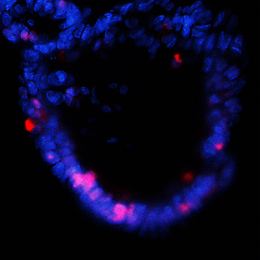The study focuses on the significance of hexanucleotide repeat expansions in the C9orf72 gene as the primary cause of amyotrophic lateral sclerosis (ALS) and frontotemporal dementia. Due to the absence of trunk neuromuscular organoids (NMOs) derived from ALS patients’ induced pluripotent stem cells (iPSCs), the researchers established an NMO system with spinal cord neural and peripheral muscular tissues. By utilizing C9orf72 ALS patient-derived iPSCs and isogenic controls, the study demonstrated that ALS NMOs effectively modeled peripheral defects in ALS, such as contraction weakness, neural denervation, and loss of Schwann cells. The neurons and astrocytes in ALS NMOs exhibited RNA foci and dipeptide repeat proteins. The researchers found that acute treatment with the unfolded protein response inhibitor GSK2606414 enhanced glutamatergic muscular contraction, reduced dipeptide repeat protein aggregation, and improved autophagy. This organoid system provides a platform for studying spinal neuromuscular pathologies in ALS and can be used for drug testing.
Keywords: Organoids, Amyotrophic Lateral Sclerosis, ALS, neuromuscular




